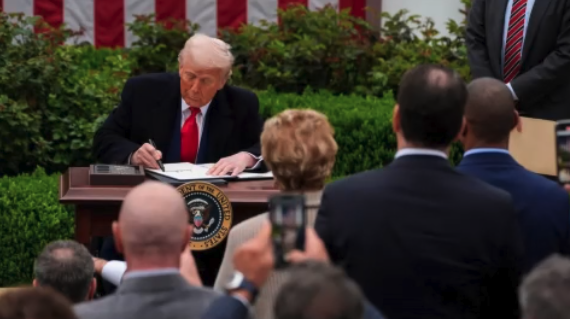Trump Defiant After Appeals Court Strikes Down Most Tariffs but Keeps Them Temporarily in Place
Former President Donald Trump responded with characteristic defiance late Friday after a federal appeals court struck down the majority of his administration’s wide-ranging tariff program — though the duties will remain in effect pending further legal action.
“ALL TARIFFS ARE STILL IN EFFECT!” Trump wrote on Truth Social, lambasting the 7–4 decision from the U.S. Court of Appeals for the Federal Circuit as “highly partisan.” The former president warned that removing the tariffs would “literally destroy the United States of America,” portraying the court’s ruling as an attack not only on his policies but on American economic independence itself.
The appeals court determined that Trump had exceeded his executive authority by invoking emergency powers to impose tariffs on foreign imports, citing trade deficits and drug trafficking as “national emergencies.” The ruling emphasized that the Constitution reserves tariff-setting powers for Congress, though successive administrations have expanded presidential discretion over trade through a patchwork of statutory delegations.
The decision marks a significant challenge to one of Trump’s signature economic initiatives, which upended decades of U.S. trade policy. His aggressive tariff campaign generated more than $142 billion in revenue by July, reshaping global supply chains and sparking retaliatory measures from trading partners. Administration officials have warned that repealing the tariffs could trigger what they described as “financial ruin” for key sectors of the U.S. economy.
Despite the legal setback, Trump vowed to continue the fight — and to take the case to the U.S. Supreme Court. “At the start of this Labor Day weekend, we should all remember that TARIFFS are the best tool to help our workers and support companies that produce great MADE IN AMERICA products,” he declared.
The case now ventures into uncharted legal territory, raising fundamental questions about the scope of presidential power in shaping trade policy. Its outcome could determine whether future presidents retain the ability to wield tariffs as instruments of national strategy — or whether that power must return to Congress.
What do you think? Should the Supreme Court uphold Trump’s authority — or reaffirm Congress’s constitutional control over trade?

